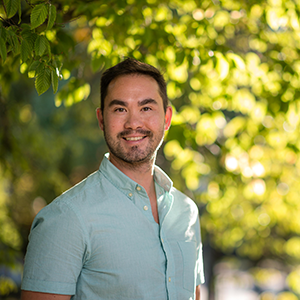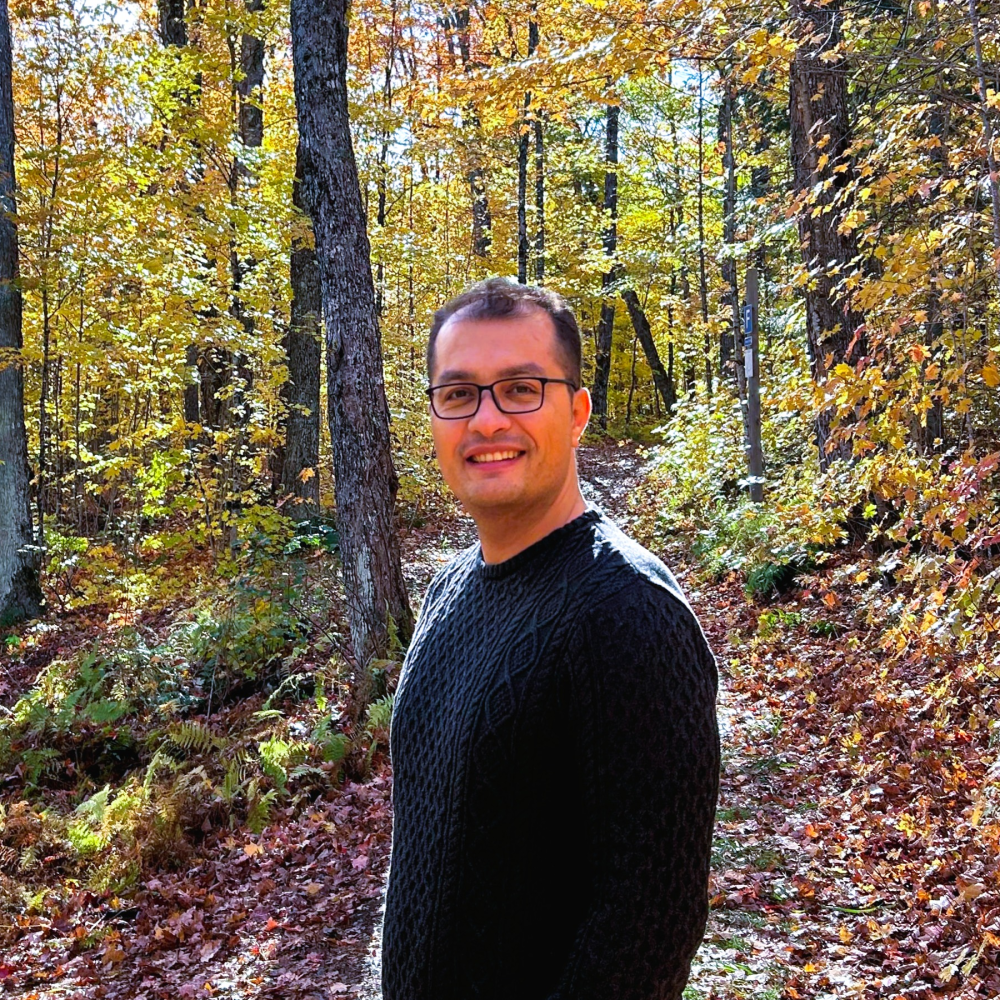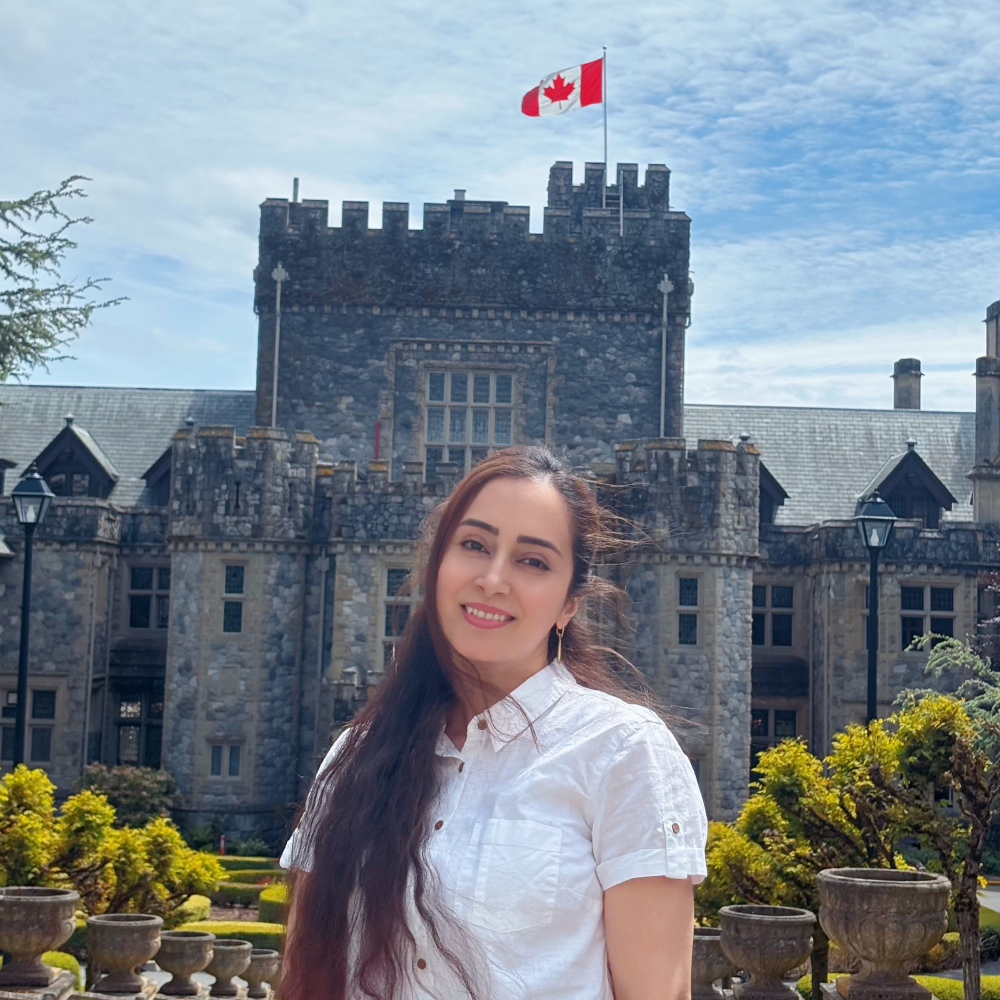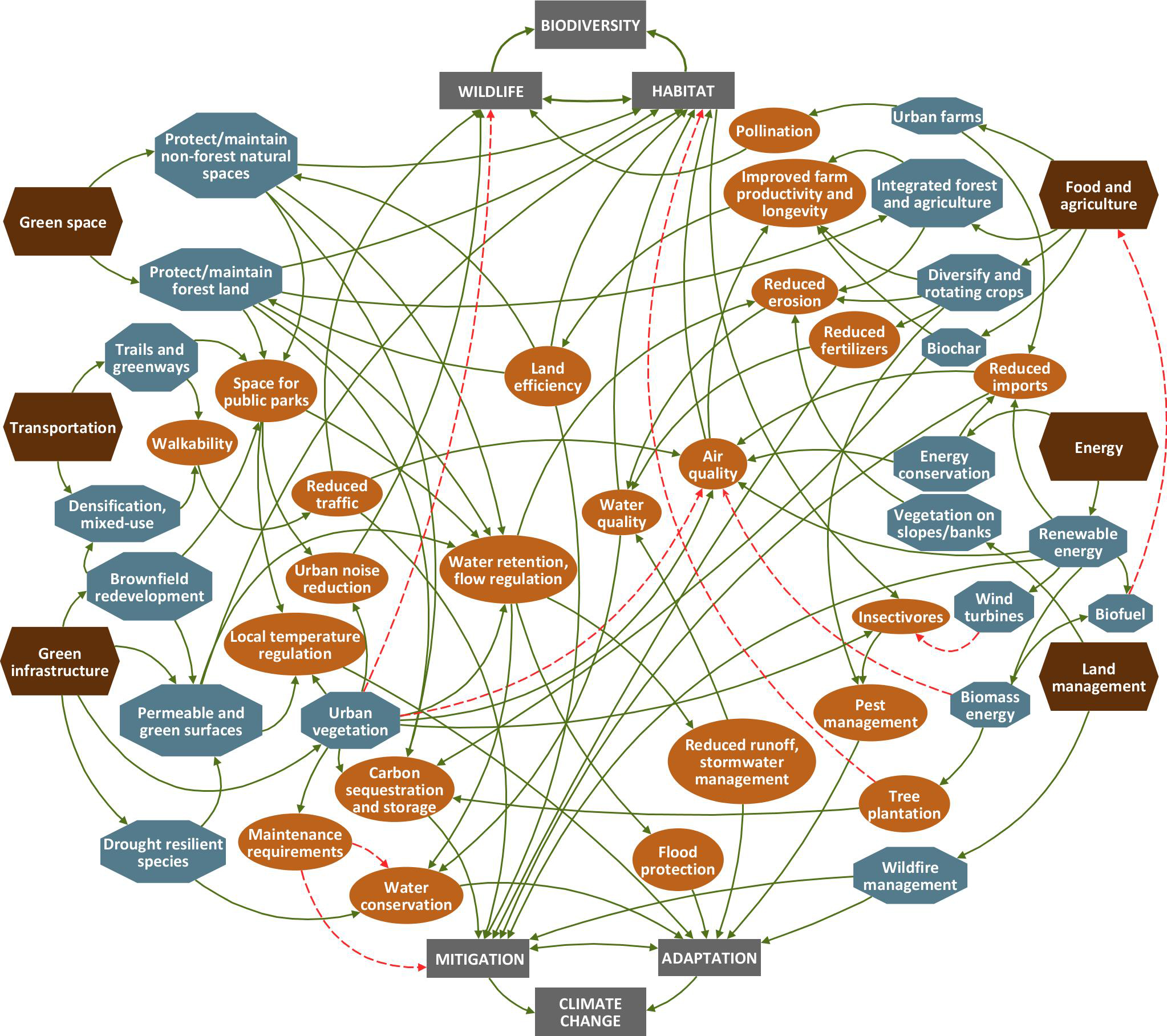The Transdisciplinary Research on Integrated Approaches to Sustainability (TRIAS) lab is led by Dr. Robert Newell, who is the Canada Research Chair (tier 2) in Climate Change, Biodiversity and Sustainability at Royal Roads University. Research at TRIAS focuses on applying system thinking to identify relationships and tensions among strategies and approaches for addressing critical sustainability imperatives, particularly climate change and biodiversity but also including numerous other social, environmental, and economic sustainability imperatives. TRIAS engages in transdisciplinary and community-based participatory research, working with government and stakeholders to develop knowledge and tools for supporting local and regional planning and decision-making, such as systems maps, integrated models, and visualizations.
 |
Rob Newell (Principal Investigator) is the Canada Research Chair in Climate Change, Biodiversity and Sustainability at Royal Roads University, and a Research Associate at the Food and Agriculture Institute, University of the Fraser Valley. Rob’s research focuses on integrated planning, and he explores the use of systems thinking for supporting local and regional planning and decision-making. He develops tools for facilitating more inclusive, collaborative approaches to planning, and his research also involves using game development software to build realistic visualizations for participatory planning and community engagement. Newell also teaches courses on critical sustainability issues, particularly climate change and biodiversity loss, and approaches to sustainable development. |
 |
Colin Dring (Research Associate) holds over ten years of experience in the field of community food security, agricultural and food system planning, community development, and agri-food policy. Colin has worked with multiple levels of federal government including Environment Canada’s and Agriculture and Agri-Food Canada’s as part of the Research Affiliate Program. Colin’s scholarly work addresses agricultural planning in contexts of diversity, complexity and unpredictability. His research examines the intersection of temporal, spatial, and social relational interactions that arise within agricultural and food systems. Dring develops approaches and practices for embedding equity and social justice into food and agricultural planning approaches and has published widely on food justice and sustainable food system education. |
 |
Alesandros Glaros (Postdoctoral Researcher) is a food systems researcher and educator based in Chilliwack, BC. His work focuses on community food planning, urban agriculture, and the social and ecological dimensions of emerging agri-technologies like cellular agriculture and controlled environment growing. His current work with the TRIAS lab involves mapping, modeling, and developing visualization tools that explore diverse agri-food futures. |
 |
Vali Vakhshoori (Postdoctoral Researcher) is a Postdoctoral Researcher at Royal Roads University and a Planning Data Analyst at the City of Brampton. He holds a PhD in Geography with a specialization in GIS from Western University and has over a decade of experience in geospatial analysis, environmental modeling, and applied research. His expertise includes machine learning, spatial statistics, and geospatial modeling of climate change impacts on agriculture and natural hazards. Vali has also worked with other academic institutions and local governments such as Western University and Regional Municipality of Waterloo on a range of spatial data projects. At Royal Roads, his work focuses on assessing the effects of climate change on British Columbia’s agri-food systems using climate scenario and land suitability modeling, supporting data-driven planning and climate adaptation strategies. |
 |
Jofri Issac (Researcher) is an MA in Environment and Management student at Royal Roads University. He is a researcher in the Climate-Biodiversity-Health (CBH) Nexus and Integrated Food Systems Planning project being conducted through the TRIAS lab. Jofri holds five years of research experience, focusing on studying the impact of climate change on rural livelihoods in India. During this period, he worked in the remote regions of India, helping communities establish social entrepreneurship through community engagement and capacity building. His research interest lies in understanding the climate change impacts, adaptation and mitigation strategies at the community level, using a participatory approach and Fuzzy Cognitive Mapping tool. |
 |
Elvia Willyono (Researcher) has a Master of Arts in Geography from the University of Victoria. She received a BA from the University of British Columbia in Environment and Sustainability. After several years of practical experience as a project manager in the field of GIS and remote sensing, she became interested in the role of 3D realistic geographic visualization and started her MA in 2020. Her thesis project explores the use of visualization in the management of protected areas and parks. |
 |
Carina Grajales Veerkamp (Researcher) is an MA student in Environment and Management at Royal Roads University, with her research focusing on community-based watershed management. She has six years of research experience in riparian ecosystems and participatory mapping in Mexico, and her research interests include community engagement, environmental justice, and biocultural diversity. She is currently a researcher in the TRIAS lab, who works on the Systems-based Visualization Tools for Integrated Watershed Management project. |
 |
Bin Xu (Researcher) is an MA student in Environment and Management at Royal Roads University. He obtained his Bachelor’s degree in Landscape Architecture in China and his Master’s degree in Landscape Architecture in Louisiana. His main research areas are stormwater management and ecological landscape planning. He has worked on numerous landscape projects in Louisiana and Shanghai. Currently, he is working on the Systems-based Visualization Tools for Integrated Watershed Management project. His primary responsibilities include developing a VR tool and comparing it with conventional visualization tools to analyze the advantages and disadvantages of VR tools in watershed management. |
 |
Yu Xia (Researcher) is a recent graduate of the MA in Environment and Management program at Royal Roads University and holds a BS degree in Meteorology. Her previous work includes her role as a meteorological analyst at the China Meteorological Administration, and she has led public climate change outreach and urban resilience initiatives. Currently, Yu is developing a tool based on the research done in theClimate Justice and Public Transit project, which integrates climate action and social justice considerations into public transportation planning. The tool can be used to inform ways of advancing practical climate solutions and efforts toward improving social justice and equity outcomes through the redesign of local public transit networks. |
 |
Bahareh Nikpey (Researcher) is a recent graduate of the Master of Environmental Management program at Royal Roads University. She also holds a Master’s degree in Agricultural Agronomy and a Bachelor’s degree in Agricultural Economics from Iran, where she worked for seven years as a researcher and practitioner in the agricultural sector. During her graduate studies in Canada, she conducted research on the social investigation of management approaches to effectively control Scotch broom (Cytisus scoparius) in the Sooke region of Vancouver Island. She also contributed as a research assistant to a project with the Victorian Food Hub Community, focusing on net-zero food hub initiatives and analyzing sustainability strategies. Her research interests include sustainable agriculture, food security, invasive species management, biodiversity, climate change, community engagement and development, and environmental and agri-food policy. |
 |
Sonia Motisca (Researcher) completed the Science and Policy of Climate Change program at Royal Roads. With a BA and MSc in Political Science, she is interested in the governance systems and policies supporting sustainable development, environmental stewardship, and climate action. Sonia has over a decade of professional experience working with small businesses and tech startups, including in the agritech sector. Curious about food security, land use, agricultural innovations, and how policy affects these, she assisted the TRIAS Lab with study that develops and tests the utility of an interactive visualization planning tool of a potential agri-tech park in Langford, BC. |

